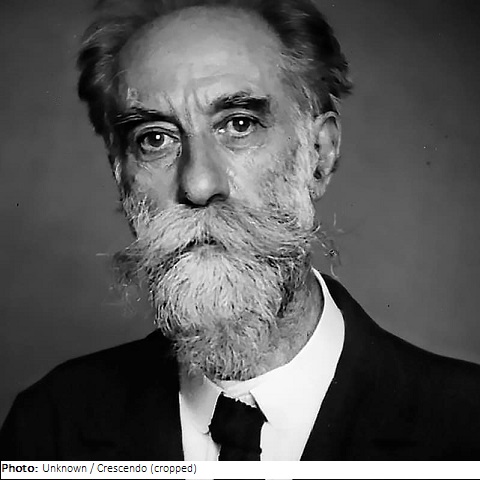
| Roles | Referee |
|---|---|
| Sex | Male |
| Full name | Charles Louis Eugène•Koechlin |
| Used name | Charles•Koechlin |
| Born | 27 November 1867 in Paris XVIe, Paris (FRA) |
| Died | 31 December 1950 (aged 83 years 1 month 4 days) in Rayol-Canadel-sur-Mer, Var (FRA) |
| NOC |  France France |
Charles Koechlin came from an Alsatian family and initially took up technical studies. He was forced to change his plans, however, when he contracted tuberculosis and did not want to pursue a military career. While recovering in Algeria, he began serious musical studies. He then entered the Paris Conservatory in 1890 and graduated in 1897.
Koechlin lived mainly in Paris as a composer, teacher, and lecturer. With Maurice Ravel, Gabriel Fauré, and Florent Schmitt, he founded the “Société Musicale Indépendante” in 1909 to promote contemporary music. Along with Albert Roussel and others, Koechlin was a member of the group “Les Nouveaux Jeunes” (1918-20), a precursor of “Les Six”.
With his piano and chamber music, and later with his orchestral works, Koechlin belonged to the avant-garde of French composers in the interwar period. Although he composed in all genres, he became known primarily as a music theorist and teacher. For instance, he made three lecture tours to the United States. In 1937, he became president of the “Fédération Musicale Populaire”.
His leftist attitude led him to write music for the “proletariat” during the 1930s, including several works “for the people” as well as film scores. Although works such as the Symphonie d’hymnes and the Symphony No. 1 won prestigious awards, his music did not have a lasting impact. A skilled craftsman, Koechlin alternated between impressionistic and expressionistic features, drawing on ancient techniques (church keys) as well as modern ones (polytonality or atonality). Following the example of Fauré, Koechlin strove to preserve elements of the French classical tradition.
| Games | Sport (Discipline) / Event | NOC / Team | Phase | Unit | Role | As | |
|---|---|---|---|---|---|---|---|
| 1924 Summer Olympics | Art Competitions |  FRA FRA |
Charles Koechlin | ||||
| Music, Open (Olympic) | Final Standings | Judge |